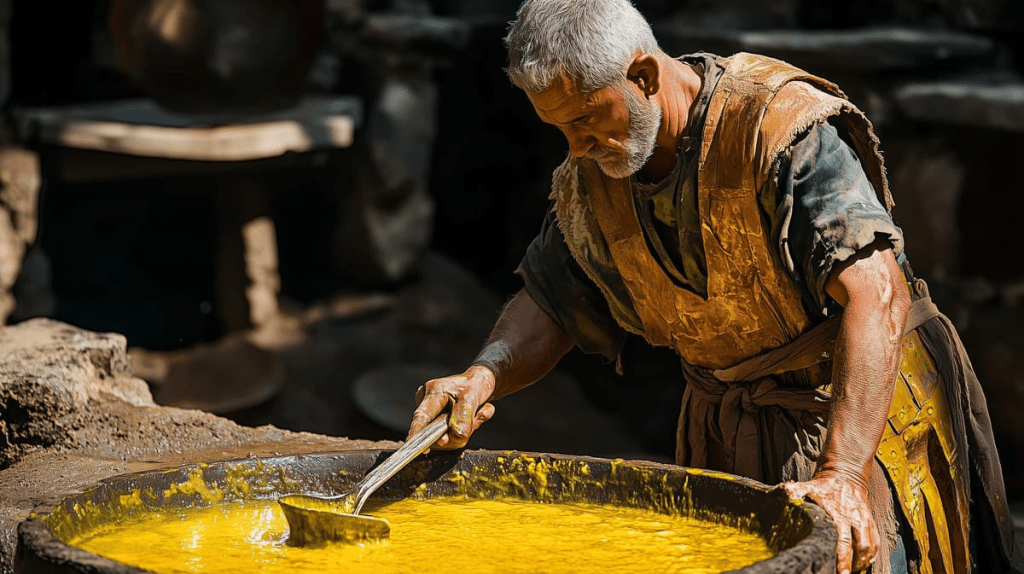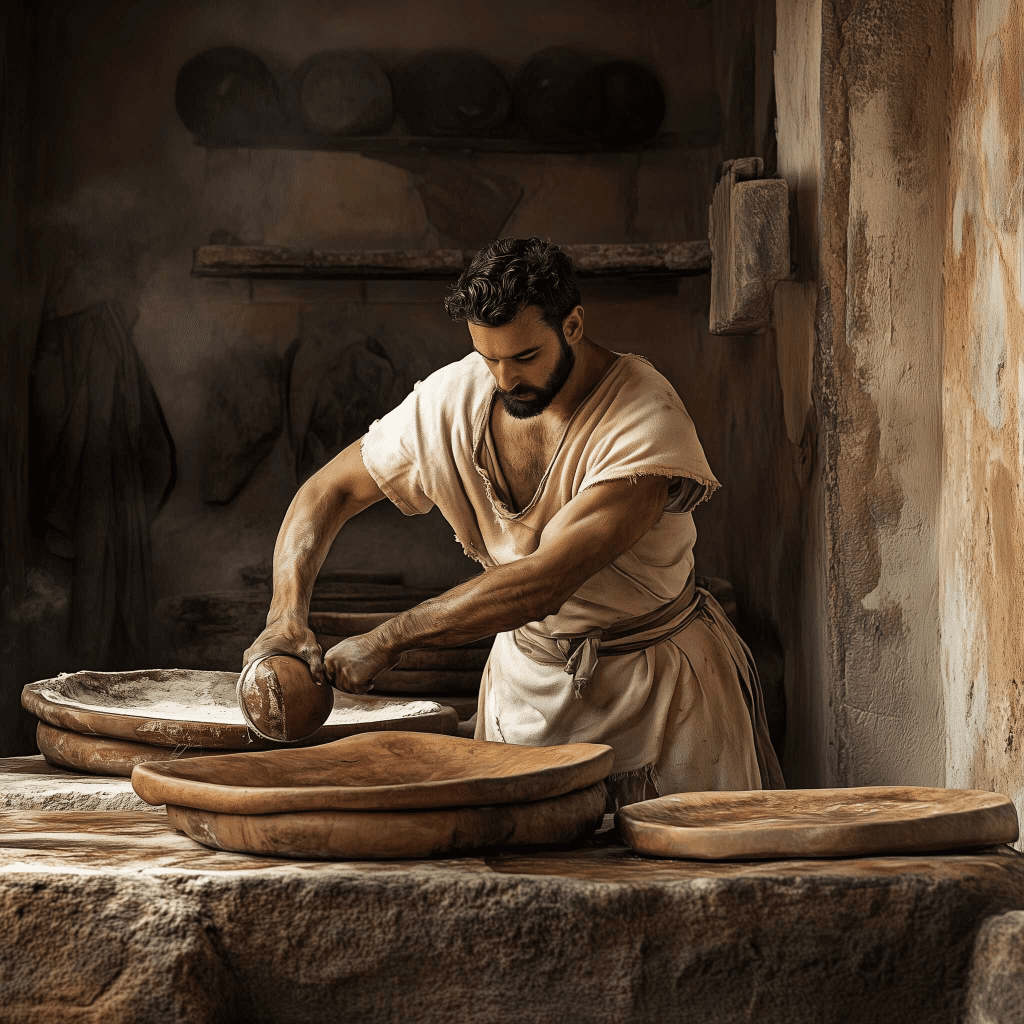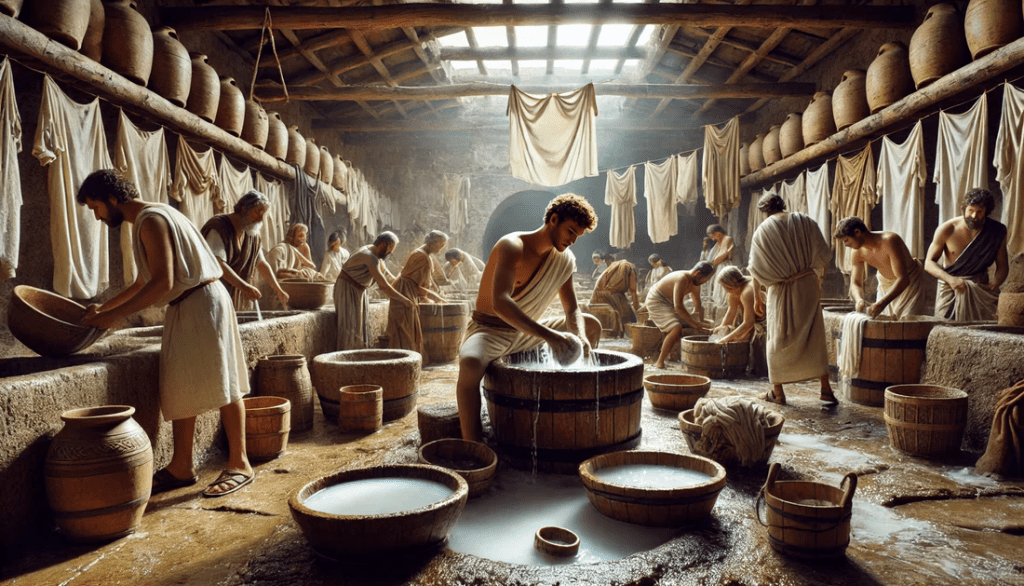When we think of clean laundry today, we picture detergent pods, fabric softeners, and the refreshing scent of lavender or ocean breeze. But in ancient Rome, the key to sparkling white togas wasn’t found in fancy products it came from a much less glamorous source: urine.
Yes, you read that right.

Urine: Rome’s Original Cleaning Agent
In a time long before commercial detergents, Roman laundries called fullonicae relied on human and animal urine as a crucial ingredient in the clothes-cleaning process. Why? Because urine contains ammonia, a powerful compound that breaks down grease and dirt. In fact, ammonia is still used today in some industrial cleaners, which makes the Romans look surprisingly ahead of their time.

Launderers would collect urine from public urinals or pots left outside homes. Clothes were then soaked in diluted urine and stomped on by workers, who would literally tread the garments clean in large tubs. After that, the clothes were rinsed and dried often coming out whiter and brighter than before.
As unpleasant as it sounds, this system worked. Really well.
Video:
Romans used urine for washing clothes
A Tax on Pee? Vespasian Thought So
Because of its widespread use and economic value, the Roman government saw an opportunity and taxed it.
In 70 AD, Emperor Vespasian introduced what became known as the “urine tax” (vectigal urinae). Public urinals were set up to collect urine, not just for sanitation, but because it was in demand. Launderers and leather tanners needed ammonia-rich urine to process textiles and hides.
Collectors would gather urine and sell it to fullers (Roman laundry workers), and the government took a cut. Some Romans thought this was absurd. After all, taxing bodily waste? Really?
But when Vespasian’s son Titus criticized the tax, the emperor held a coin from the tax revenue up to his nose and famously said, “Pecunia non olet” “Money does not stink.”
That phrase still lives on today as a reminder that profit often overshadows its source, no matter how unsavory.

The Laundry Business Was Serious Business
Roman fullonicae weren’t small mom-and-pop operations either. They were often large-scale businesses with several workers. In cities like Pompeii, archaeologists have uncovered fully preserved fullonicae, complete with stone basins, treadmills for pressing water out of clothes, and rooftop drying racks.
This wasn’t just a necessity it was an industry.
And because white garments were a symbol of purity and status in Roman society, keeping them spotless wasn’t just about hygiene it was a statement.
Video:
Old World Laundry: How Romans Used Urine to Clean Clothes
What Can We Learn from This?
It’s easy to laugh at the idea of cleaning clothes with urine, but the truth is, the Romans found a sustainable, chemical-free (well, sort of) way to maintain their clothing before the age of modern science.
Even more interesting is the way Emperor Vespasian recognized value in what others discarded. His pragmatic view of economics seeing potential even in waste is a lesson that still holds true today.
Whether you’re a fan of history, laundry facts, or quirky tax policies, the Roman pee tax is one of those odd but fascinating footnotes in time that reminds us just how innovative and resourceful people have always been.

Conclusion
The next time you toss your gym clothes in the wash, just be grateful for scented detergents and washing machines. Ancient Romans did it barefoot, with buckets of urine, and still managed to stay impressively clean.
And remember: money doesn’t stink even if the source does.


